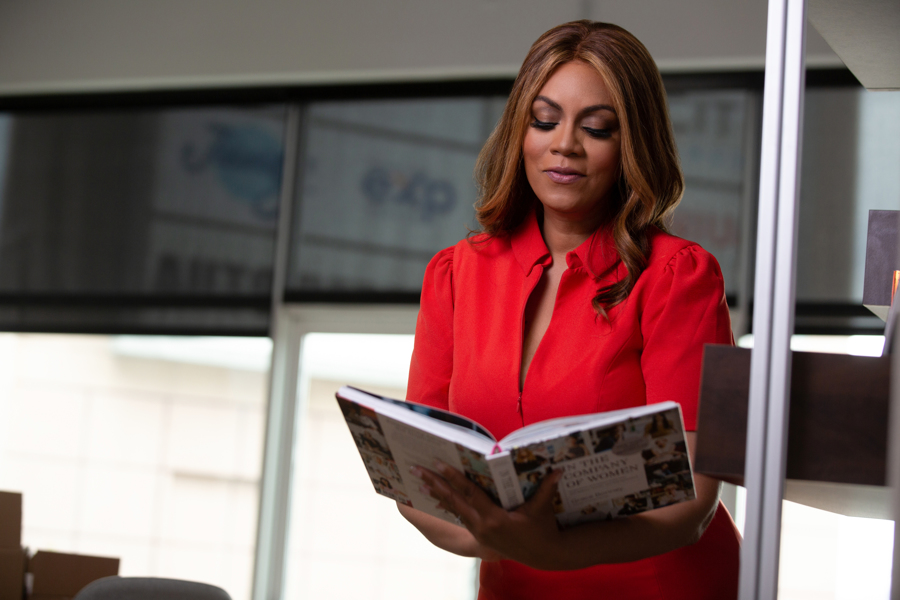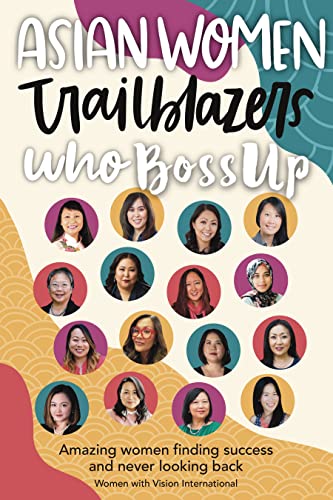by Jessica Xiao, AsAmNews Contributor
Amy Le was born nine months before the fall of Saigon. She was just 5 years old when her mother brought her and her 16-year-old cousin to America from Vietnam on a boat with 40 other refugees, traveling through the South China Sea.
Today she is the founder of Quill Hawk Publishing, has authored five books and has helped other authors publish their own books through her imprint. She’s working on six to seven books now, with several more in the pipeline.
“I never wanted to be a writer. It took the catalyst of my mom dying to push me to that next discomfort level. It’s never too late. I’m in my forties– I’m actually 48 years old, and I started this writing journey, pivoting from my Microsoft and T-Mobile corporate career where I was doing very well. I left all that behind to write, not knowing if anybody’s going to read it, not knowing if I’m going to make any money from it, and it has grown its own wings and legs to now where I own my own publishing company and help other authors indie-publish their own,” Le said in an interview with AsAmNews.
Her trilogy Snow in Vietnam, Snow in Seattle, and Snow’s Kitchen is based on her own life and her mom’s journey from Vietnam to America.
“It’s all about the Communist regime. How do we survive that with the fall of Saigon, how we survive the boat, the refugee experience itself, and being in the refugee camps, to cultural identity and growing up as a teenager, not knowing if I’m Vietnamese or American. It encompasses all of that,” Le said.
Le believes it’s imperative to capture these stories before the older generations are no longer with us. She is part of a podcast called Vietnamese Boat People, which has released a conversation kit to help folks ask their family about their own diasporic histories.
“It’s taken over forty years for that trauma to heal a little bit, to be able to speak about it. And now you’ve got the 1.5 and 2.0 generations curious. The older generation is dying and they’re taking their stories with them,” she said.
Le is one of sixteen “trailblazing” Asian American women featured in a book titled Asian Women Trailblazers Who Boss Up released in early August. It’s the latest in the Boss Up book series started by Tamira Luc during the pandemic to empower and promote women entrepreneurs.

In just two years, eight books highlighting sixteen women have been published, and four more are in the works. Two feature all AAPI women, a focus that came about when Luc met collaborator Sheena Yap Chan, while working on a Boss Up book featuring women of color. Chan, an entrepreneur and creator of The Tao of Self Confidence podcast, has interviewed more than 800 women in her work. She quickly became a part of the team and connected Luc to AAPI women leaders and entrepreneurs.
“I said, oh wait, we’re going to end up with a whole book full of Asian women in this international women of color book. Let’s just do another book. So that’s how the first one [Asian Women Who Boss Up] came,” Lu said in an interview with AsAmNews.
The mission is dualfold: these books inspire and provide role models for their audience, but they also transform the subjects themselves, who through the process gain a community of women who encourage one another and gain new self-promotional skills and newfound confidence through promoting the book in which they’re featured.
Women apply for the opportunity to be a part of the book and pay to be a part of the four-to-five month process in which they learn marketing and promotional skills. Book profits from Amazon bestsellers campaigns are donated to Girls Incorporated.
“Every dollar that I get from Amazon, even from my own personal books, I match and give to Girls Incorporated. Whatever that money is, I double it. It’s not millions of dollars, but I feel really good about giving money to little girls,” said Luc.

What is “bossing up?”
“Bossing up is stepping out of your comfort zone and doing what no one else has done, or that you’ve see that you haven’t seen before. When you do that, your comfort zone expands naturally a bit more. The next thing you know, you’re walking into a room, everybody thinks you’re an extrovert and you know everybody, but in reality, it’s because you’ve had those one-on-one connections and you’ve built those relationships. It’s to trailblaze because you want to pave that path for the next generation,” Luc said.
It’s also believing in yourself, Le added.
“At the end of the day, you won’t push yourself to get uncomfortable unless you believe in yourself. There’s a lot of things that we do that are scary. A lot of times people think, I feel fear, I need to stop. And you don’t. You don’t stop because you feel the fear, it goes in the back seat with you and you keep on driving,” she said.
Le said “bossing up” was important to her journey.
“My mom was my world and I just collapsed [when she died]. I couldn’t function. I quit my job and spent two years mourning. But I found it therapeutic [to write]. I spent a lot of time traveling, unearthing my history, my culture, interviewing, doing a lot of research, talking to war veterans,” she said.
After two years, Le had a first draft.
“Then it came to the querying stage. Trying to find those agents and editors, and again it was bossing up, because I was like, oh my gosh, 35 rejections later, am I ever going to get this book out?” she said.

Growing up Luc had Oprah and Tyra Banks to look up to, but visible Black women entrepreneurs were few and far between. She recognizes the struggle especially for anyone who is not Black or white.
“They’re just now starting to put Asian men in commercials. If you’re young, you might think it’s always been like that, but it’s very new. My son is half-Asian and half-white and that’s all he knows. Thank goodness he feels that way,” Luc said.
Le’s role models growing up were her mom and Connie Chung.
“Growing up as a new refugee, you don’t have time to watch TV, much less own a TV. And the only person I remember seeing was Connie Chung, so that’s who I wanted to be. I wanted to be a news anchor woman and the next Connie Chung,” she said
Luc also notes the scarcity of AAPI authors.
“Four percent of book authors are Asian in the United States– and just think how many of those are women? Very, very few. There’s only 2.7% of Asian women in leadership roles in this country. That’s crazy. So when you’re talking about representation, I strongly believe we have to be represented. We have to see ourselves, our little girls have to see it’s possible.”
Luc says this book was also an important opportunity to bridge communities. Her husband is from Vietnam as well, and she learned more about his heritage through Le’s stories, and the stories of others featured in the book.
“Every time I hear another woman’s story, I realize this is my same story. What I’ve learned most from the Asian Women Trailblazers book itself is that these women have been so silent for so long, have never been able to get their story out. I’ve been so focused on my own culture, my own community, that I hadn’t even stopped to consider they’ve been going through this, so every time I listen to the stories, I get a little choked up feeling like they had to hold that all in,” she said.
Le thinks her mother would be proud of her.
“I think my mom would be very proud that I was able to write her story when she couldn’t. I think she would’ve been proud that I started to embrace my own identity and my culture, everything that she fought for, when I was born with my heart condition and wasn’t supposed to live past the age of five. She hustled me to America to have that open heart surgery that I so desperately needed. So I think she would just bawl her eyes out, knowing that, oh my gosh, all the things that I did for my baby, wasn’t for nothing,” she said.

AsAmNews is incorporated in the state of California as Asian American Media, Inc, a non-profit with 501c3 status. Check out our Instagram account. Go to our Twitter feed and Facebook page for more content. Please consider interning, joining our staff, or submitting a story, or making a tax-deductible financial contribution. We are committed to the highest ethical standards in journalism. Please report any typos or errors to info at AsAmNews dot com

